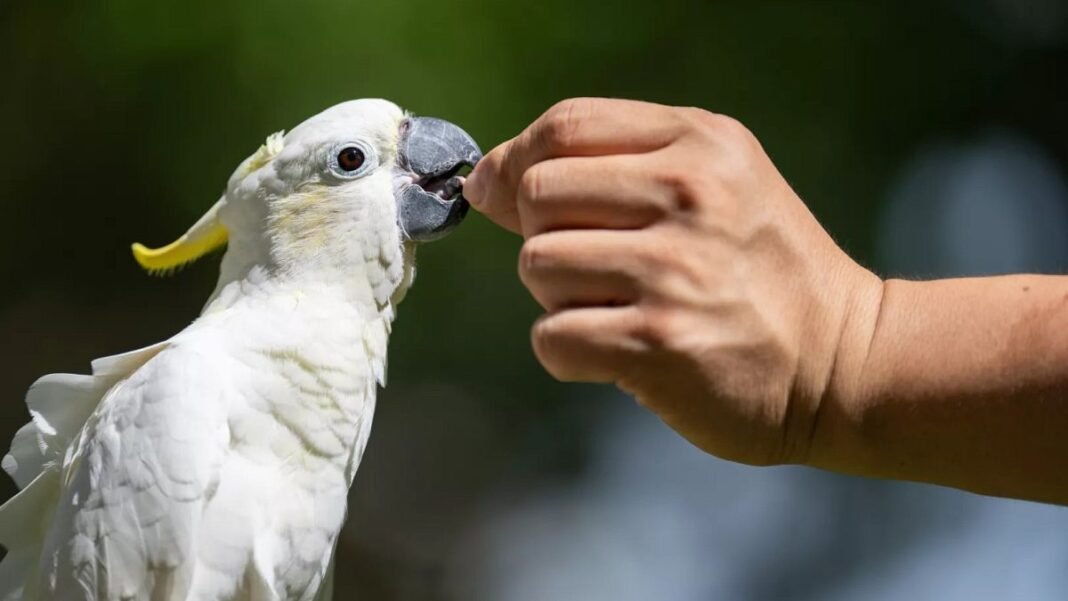The yellow-stricken endangered species of yellow, Occato has discovered an unexpected sanctuary amongst the towering skyscrapers of Hong Kong, but like human neighbours, they now have a hard time finding a place to call their home.
Snow-like birds native to Indonesia and East Timor pass through urban parks in Asian financial hubs, flashing coats of arms like yellow crowns. They make up about 10% of the global wild population of species, with only up to 2,000 mature birds being the number.
Research shows that the city’s cockatiel population is stagnant as birds living in tree caves lose their natural nest spaces in old trees due to typhoons and government tree mowing for public safety. It is increasing global pressure on Occato, including illegal pet trade and climate change.
Hong Kong conservationists have the solution to installing artificial nest boxes that mimic these natural indentations.
Astrid Anderson, a postdoctoral researcher at the University of Hong Kong, led the project. bird Her team had already settled in a nest box anchored to a tree on campus, the city’s oldest university. She aims to have 10 boxes installed by the end of the year, and ultimately aims to increase that number to 50 over the years across Hong Kong Island.
“And they can continue to live in the city,” she said.
Pet trade and habitat loss pushes Indonesian species to the brink
As it spread across the island chains from central Indonesia to East Timor, the yellow-stylisted cocatoo disappears from many islands and clings to others to survive.
According to the International Union for Conservation of Nature, 90% of the population is believed to have disappeared since 1978, mainly due to confinement in the pet trade.
The weak enforcement of Indonesia’s 1994 export ban allowed trade to persist, including chick targets. In 2015, Indonesian police arrested a man on suspicion of smuggling about 20 birds in water bottles.
Deforestation from agriculture and logging is another issue. Indonesia lost 107,000 square kilometres of the original tropical rainforest between 2002 and 2024, a region of Iceland’s size, accounting for about a third of its own. Loss of all tree covers Meanwhile, according to Global Forest Watch.
Climate change is making things worse. Rising temperatures dry out forests and make them more vulnerable to fires. Many birds live in volcanic islands, where eruptions can stimulate wildfires in dry landscapes.
“Fires are popular,” said Bonnie Zimmerman, director of the nonprofit Indonesia Parrot Project.
Hong Kong’s bird market sales raise concerns
Wild Occato in Hong Kong’s urban parks could be from pets that have been fled or released, Anderson said. According to one urban legend, they descended from a pet bird released by the British governor in 1941 before surrendering to invade the Japanese army.
Hong Kong is engaged in commercial trade in wild cocatoes, but permits the sale of captive breeding of operational registered under the International Trade Treaty of endangered species of wild fauna and plants. However, there is no such breeding work registered within the city.
In August, the three-month chick was sold at the city’s bird market for HK$14,000 (1,533 Euros).
A 2017-2018 survey by Anderson found 33 occatoes selling three times the number of birds imported since 2005. Human trafficking From wild populations overseas or Hong Kong, the university said in a statement.
Anderson has developed a forensic test that will help distinguish between people living in the wild and those raised in captivity. She hopes that one day it will be applicable to the market.
Many Hong Kongers don’t know that birds are extremely at risk. Dreamy Cheung said she didn’t notice when she bought her pet Mochi in 2021 for HK$20,000 (2,191 Euro). She felt uneasy after learning of the endangered status of her intelligent bird, especially given the lack of its discernible leg ring and the possibility of illegal origin.
“It’s like taking away someone else’s baby,” she said.
In an emailed statement to The Associated Press, the Agriculture, Fisheries and Conservation Agency said the government is committed to protecting the species at risk and has pledged to regularly inspecting it at markets and stores. Although there are no records of Cockatu poaching in the past five years, he says he will investigate the report.
It added that it will provide bird conservation advice on trimming trees that may affect wild birds.
Create a space for coexistence
Hong Kong’s Cocato represents how humans and wildlife can coexist in highly urbanized environments, Anderson said. Local birds It also can carry some distinct genetic lineages that lack native ranges, helping to maintain genetic diversity.
“Hopefully, Hong Kong’s population can help save this species from extinction,” she said.
Her team will use cameras installed inside the nested box to collect data on Cocatoo’s reproductive behavior. This is a topic that has not been extensively studied.
COCKATOOS squealed on branches above a tree in a park in the city’s Causeway Bay Area as conservationist Harry Wong installed a nesting box filled with wooden chips.
Wong attempted a similar project 10 years ago without success.
This time, he was excited and surprised to see Cockatoos occupying the nest box just two months after the University of Hong Kong was set up.
“We can make small things in the city that allow the animals that live here to coexist with us,” he said.
